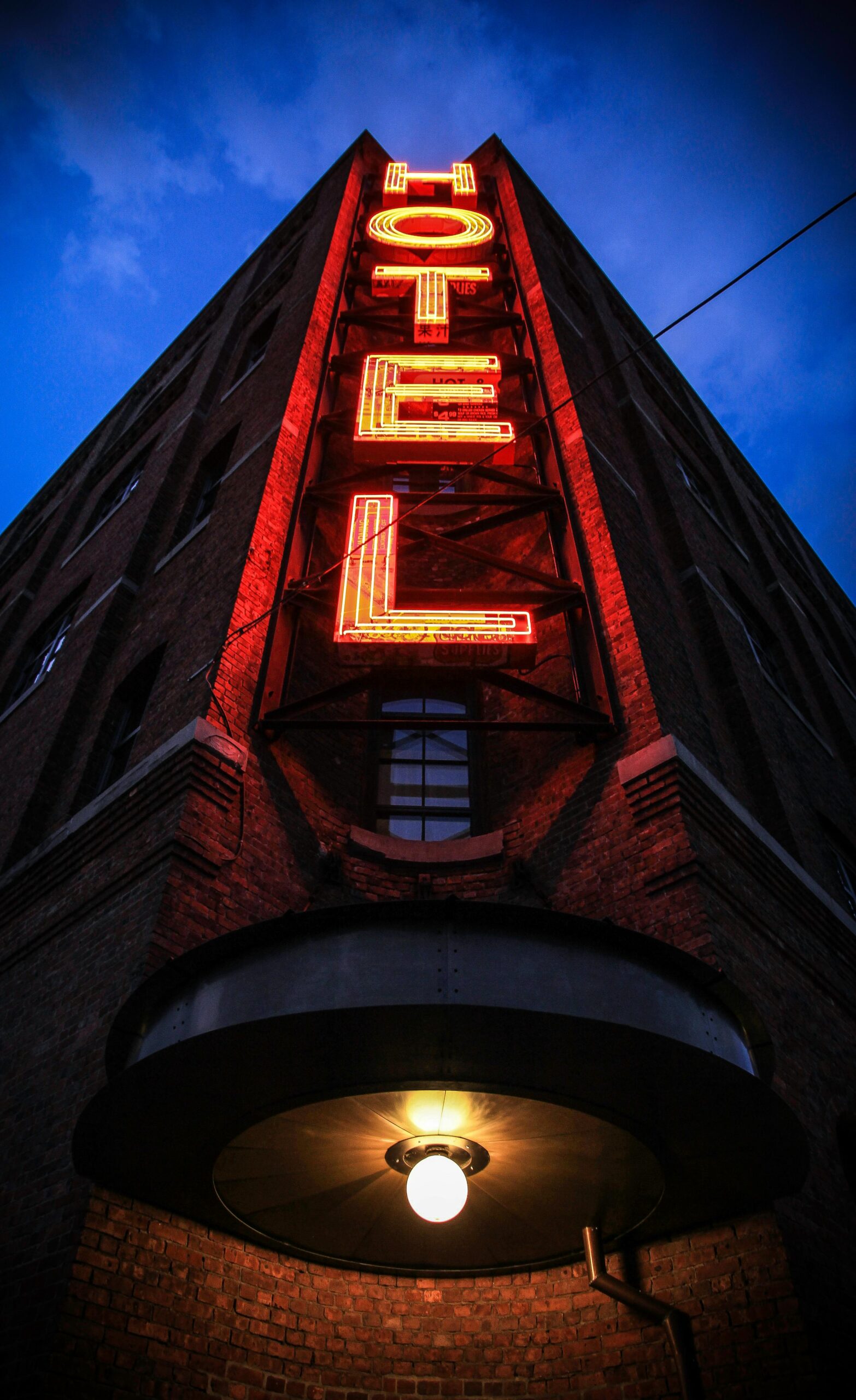
In the bustling world of hospitality, financing can be the linchpin that transforms a simple inn into a luxurious hotel or helps an established hotel expand its horizons. But what exactly are hotel loans, and how can they catalyze growth and success in the competitive hotel industry? Whether you’re a seasoned hotelier or a budding entrepreneur, understanding the ins and outs of hotel loans is crucial.
Overview: Unlocking the Secrets of Hotel Loans
Whether you dream of launching a quaint bed-and-breakfast or looking to upscale a boutique hotel into a lavish resort, understanding hotel loans is pivotal. Let’s delve into the core of hotel financing, unraveling its complexities and how it can be the key to unlocking your hospitality aspirations.
What Are Hotel Loans?
These loans can provide the capital required for various purposes, including:
- Acquisition: Purchasing an existing hotel property.
- Construction: Building a new hotel from the ground up.
- Renovation: Upgrading or refurbishing an existing property to meet current market standards or to introduce new amenities.
- Refinancing: Restructuring existing debt to achieve more favorable terms or to secure additional funds for expansion.
Why Are Hotel Loans Essential?
In the dynamic world of hospitality, securing the right financing cannot be overstated. Here’s why hotel loans are indispensable:
- Capital for Growth: They provide the necessary funds to expand operations by acquiring additional properties or enhancing current ones.
- Competitive Edge: With the proper financial backing, hoteliers can invest in modern amenities and innovative services, keeping them ahead in a competitive market.
- Operational Stability: Hotel loans can help maintain cash flow stability, especially in seasonal markets where revenue fluctuates.
- Investment Opportunities: They allow hoteliers to seize opportunities promptly, such as purchasing a desirable property that suddenly comes onto the market.
Types of Hotel Loans
Understanding the various types of hotel loans available can help you tailor your financing strategy to your specific needs. Here are some of the primary options:
- Commercial Real Estate Loans: These are typically used for purchasing or refinancing hotel properties. They are long-term loans secured by the hotel property itself.
- SBA Loans: They are ideal for smaller hotels or startups in the industry.
- Bridge Loans: These short-term loans provide interim financing, often used to cover costs while waiting for long-term funding to be secured or selling another property.
- Mezzanine Financing: This debt and equity financing hybrid is often used for large-scale projects. It provides capital with the option for the lender to convert debt into an ownership stake if the loan is not repaid on time.
- Equipment Financing: Specifically designed for purchasing hotel equipment, such as kitchen appliances or technology systems, this type of loan helps manage the cost of significant capital expenditures.
Key Considerations
When venturing into the world of hotel loans, it’s crucial to consider the following:
- Creditworthiness: Lenders carefully assess your credit background and financial well-being. A robust credit profile can open doors to improved terms and lower interest rates.
- Business Plan: A robust business plan demonstrating your hotel’s potential for success is essential. It should include market analysis, financial projections, and a clear strategy for growth.
- Collateral: Hotels often serve as collateral for loans. Be prepared to offer assets as security to assure lenders of the loan’s safety.
- Loan Terms: Each type of loan has unique terms that can impact your financial strategy.
Financial Strategies: Maximizing Returns with Hotel Loans
In hospitality, strategic financial planning can make all the difference between stagnation and growth. Once you’ve grasped the fundamentals of hotel loans, it’s time to explore practical strategies for leveraging this financial tool to its fullest potential.
Strategic Utilization of Hotel Loans
Hotel loans offer a plethora of opportunities to bolster your business, each requiring careful consideration and planning:
| Purpose | Strategy |
| Expansion | We are securing funds to acquire additional properties or expand existing facilities. |
| Renovation | We are upgrading amenities and modernizing infrastructure to enhance the guest experience. |
| Technology | We are investing in cutting-edge technology to streamline operations and improve efficiency. |
| Marketing | We are allocating resources for targeted marketing campaigns to attract more guests. |
| Sustainability | We are implementing eco-friendly initiatives to appeal to environmentally-conscious travelers. |
Case Study: The Power of Strategic Investment
Consider a boutique hotel looking to enhance its appeal in a competitive market. By leveraging a hotel loan for a comprehensive renovation project, including updating rooms with luxurious amenities and integrating sustainable practices, the hotel attracts more discerning guests and improves operational efficiency. This strategic investment enhances guest satisfaction and boosts revenue streams through increased occupancy rates and higher room rates.
Mitigating Risks: Financial Planning Essentials
While hotel loans can catalyze growth, prudent financial management is essential to mitigate potential risks:
- Budgeting: Develop a detailed budget outlining project costs and ongoing expenses to ensure the loan amount is effectively utilized.
- Risk Assessment: Evaluate market trends and potential economic fluctuations impacting cash flow and loan repayment.
- Cash Flow Management: Monitor revenue streams and expenses closely to maintain financial stability and meet loan obligations.
- Legal and Regulatory Compliance: Stay informed about local regulations and legal requirements affecting hotel operations and financing options.
Future Trends: Adapting to Changing Market Dynamics
As the hospitality industry evolves, so do the trends in hotel financing:
- Alternative Financing: Explore emerging financing options like crowdfunding or peer-to-peer lending platforms.
- Tech Integration: Embrace advancements in financial technology (fintech) to streamline loan application processes and enhance transparency.
- Sustainability Initiatives: Integrate sustainability metrics into loan assessments to resonate with increasing consumer demand for environmentally conscious lodging options.
Choosing the Right Hotel Loan: A Decision-Making Guide
Selecting the ideal hotel loan requires a thoughtful assessment of your business goals, financial capabilities, and property’s specific needs.
- Loan Type Compatibility: Determine which type of loan aligns best with your project. For instance, a commercial real estate loan may be suitable if you’re acquiring a new property. If you need short-term financing for renovations, a bridge loan could be more appropriate.
- Interest Rates and Terms: Compare interest rates, repayment terms, and associated fees across different lenders. Fixed-rate loans offer stability, while variable-rate loans may initially have lower rates but fluctuate with market conditions.
- Loan-to-Value (LTV) Ratio: Assess the maximum amount lenders are willing to finance relative to your hotel’s appraised value.
- Repayment Schedule: Evaluate the repayment schedule and ensure it aligns with your projected cash flow. Flexible repayment options help manage seasonal revenue fluctuations common in the hospitality industry.
- Lender Reputation and Experience: Choose lenders with a proven track record in hotel financing. Consider their responsiveness, industry knowledge, and ability to provide personalized financial solutions.
- Additional Costs and Fees: Transparent disclosure of all costs ensures you can accurately compare offers.
- Financial Stability: Lenders will scrutinize your financial health, including credit history, debt-to-income ratio, and cash reserves. Strengthening these aspects can improve your loan eligibility and terms.
- Flexibility for Future Growth: Anticipate future needs and ensure your chosen loan allows for flexibility in scaling operations, acquiring additional properties, or refinancing existing debt.
Step-by-Step Guide to Securing a Hotel Loan
Securing a hotel loan involves a structured process that begins with preparation and ends with the disbursement of funds. Follow these steps to navigate the journey of obtaining financing for your hospitality venture:
Step 1: Assess Your Financing Needs
Before diving into the loan application process, thoroughly assess your financing requirements. Determine the specific purpose of the loan—whether it’s for property acquisition, renovation, expansion, or refinancing existing debt.
Step 2: Prepare Your Financial Documents
Gather essential financial documents that lenders typically require, including:
- Business Plan: Outline your hotel’s market position, competitive advantages, and growth projections.
- Financial Statements: Provide recent income statements, balance sheets, and cash flow statements to demonstrate your hotel’s economic health.
- Tax Returns: Submit personal and business tax returns for the past few years.
- Credit Report: Acquire a copy of your credit report to evaluate your credit standing.
Having these documents ready demonstrates your preparedness and enhances your credibility as a borrower.
Step 3: Research and Select Lenders
Research lenders specializing in hotel financing and compare their loan products, interest rates, terms, and customer reviews. Consider consulting with financial advisors or brokers specializing in hospitality financing to identify reputable lenders with experience in your market segment.
Step 4: Submit Loan Application
Fill out the lender’s application form and attach your financial documents. Describe your intended utilization of the loan funds and justify why your hotel represents a compelling investment opportunity.” Be prepared for the lender to thoroughly evaluate your application, including a review of your creditworthiness and the feasibility of your business plan.
Step 5: Due Diligence and Underwriting
- Property Appraisal: Assessing the value of the hotel property you intend to finance.
- Financial Analysis: Review your financial documents and business projections to assess risk and determine loan terms.
- Legal Review: Ensuring compliance with regulatory requirements and confirming the legal status of the property.
During underwriting, the lender will scrutinize your application to determine if your hotel meets its lending criteria and if the loan can be approved.
Step 6: Loan Approval and Terms Negotiation
Review the loan terms and negotiate any aspects requiring clarification or adjustment if approved.
Step 7: Loan Closing and Disbursement
Once you’ve agreed to the terms, finalize the loan agreement by signing the necessary documents at the closing.
Step 8: Post-Loan Monitoring and Management
After securing the loan, closely monitor your hotel’s financial performance to ensure you meet repayment obligations.
Hotel Loan FAQs
Navigating the world of hotel loans can raise several important questions. Here are answers to some frequently asked questions to help clarify your understanding:
What types of hotels are eligible for hotel loans?
Hotel loans are available for many hospitality properties, including boutique hotels, luxury resorts, budget motels, and extended-stay accommodations. Eligibility typically depends on the property’s financial performance, market competitiveness, and the borrower’s creditworthiness.
How much can I borrow with a hotel loan?
You can secure varying loan amounts for hotel financing, contingent upon the property’s assessed worth, financial standing, and the lender’s specific lending parameters. Funding options typically span hundreds of thousands to several million dollars, tailored to your requirements and the loan’s intended use.
What are the typical interest rates for hotel loans?
Interest rates for hotel loans can vary widely depending on the loan type, market conditions, your credit history, and the lender’s policies. Fixed-rate loans offer stable monthly payments, while variable-rate loans may initially have lower rates but are subject to market fluctuations.
How long does it take to secure a hotel loan?
From the initial application to loan disbursement, it can take several weeks to a few months, especially if additional due diligence or negotiations are required.
What are the typical repayment terms for hotel loans?
Repayment terms for hotel loans vary depending on the loan type and lender. They often range from five to twenty-five years, with some loans offering flexible repayment schedules tailored to seasonal revenue patterns typical in the hospitality industry.
What collateral is required for a hotel loan?
Hotel loans are typically secured by the hotel property itself, which serves as collateral to protect the lender’s investment. Depending on the loan amount, your credit profile, and the lender’s risk assessment, additional collateral or personal guarantees may be required.
Can I use a hotel loan for operational expenses?
Hotel loans are primarily intended for capital expenditures such as property acquisition, renovation, expansion, or refinancing existing debt. While some loans may allow for working capital needs, it’s essential to clarify with your lender the approved uses of the loan proceeds.
Conclusion: Empowering Your Hotel’s Future with Strategic Financing
Navigating the complexities of hotel loans is a pivotal step toward realizing your hospitality business’s full potential. As you’ve explored in this guide, hotel loans serve as financial tools and strategic enablers of growth, innovation, and sustainability in a competitive industry.
From understanding the diverse types of hotel loans available to mastering the steps of securing financing, you’ve equipped yourself with the essential knowledge to make informed decisions. Strategic financing can propel your business forward, whether you’re embarking on a renovation project to enhance the guest experience or seizing opportunities to expand your hotel portfolio.
Remember, the key lies in thorough preparation, meticulous planning, and leveraging the expertise of financial advisors and lenders specializing in hotel financing. By aligning your financial strategy with your business objectives and staying adaptable to market dynamics, you can position your hotel for long-term success.
As you move forward, monitor industry trends, maintain open communication with stakeholders, and nurture a resilient financial foundation. With strategic use of hotel loans, you’re not just investing in your property—you’re investing in the guest experience, operational excellence, and the future growth of your hospitality venture.
Embrace the opportunities that hotel loans present, and embark on the next chapter of your hotel’s journey with confidence and foresight.



